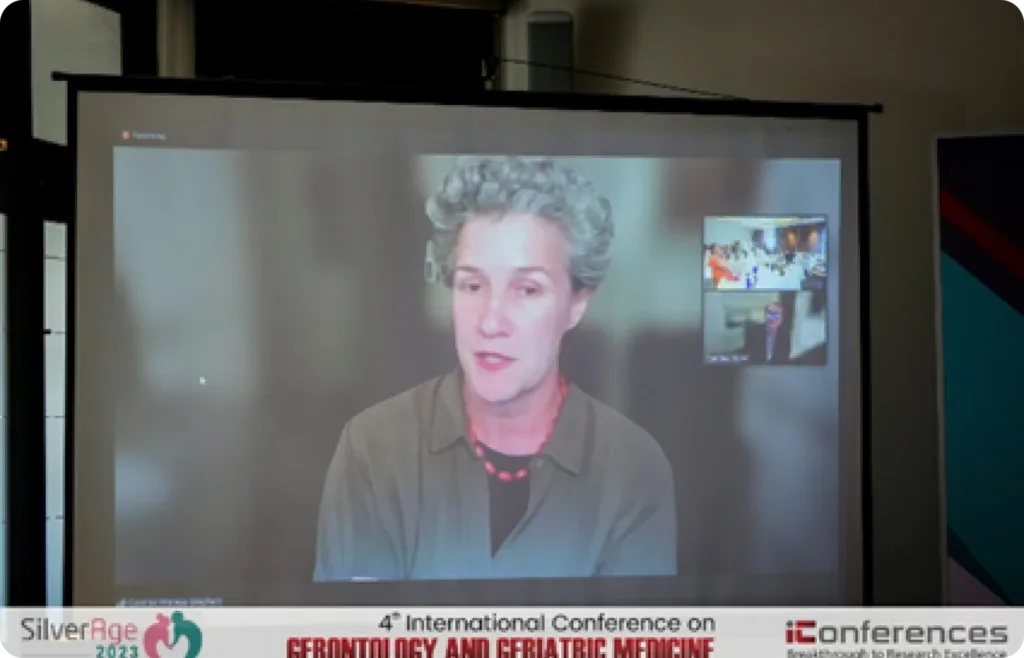The 4th International Conference on Gerontology and Geriatric Medicine was successfully held on May 26-27 via a hybrid platform. The conference was organized by iConference and had the International Institute on Ageing, United Nations – Malta as the academic partner. The conference featured keynote speeches, panel discussions, oral presentations and poster sessions on various topics related to ageing and health. The conference also provided networking opportunities for the participants from different countries and disciplines

Gerontology and geriatric medicine are related but distinct fields that deal with different aspects of aging. Gerontology is the scientific study of the aging process, from the cellular to the societal level, and the factors that influence it. Geriatric medicine is a medical specialty that focuses on the health care of elderly people, especially the prevention, diagnosis, and treatment of age-related diseases and conditions. The conference aims to bring together researchers, educators, and practitioners from both fields to share their latest findings, insights, and challenges in advancing the knowledge and practice of aging well. The conference featured keynote speakers, panel discussions, oral and poster presentations, workshops, and networking opportunities on various topics such as health economics, health services research, health outcomes, public health, medicine, biology, equity, social science, epidemiology, demography, and nursing. The conference also highlighted the interdisciplinary and global nature of gerontology and geriatric medicine and their relevance to countries that are experiencing an exponential growth in older population. Participants from various countries including the Netherlands, Australia, India, Macau, Hong Kong, China, and Sri Lanka brought a range of diverse ideas to the table, leading to many productive conversations.
The organizers announced the 4 th International Conference on Gerontology and Geriatric Medicine 2023 conference and launched its website with the hope of having an equally successful event. Participants expressed their enthusiasm for attending next year’s conference and hoped to meet in person if health conditions permit.
Keynote Speech by Dr. Shiromi Maduwage and Dr. Rhonda Nay
Dr. Shiromi Maduwage, Public health specialist, consultant physician, Ministry of Health, Sri Lanka, enriched the conference with her valuable insights. She discussed the current prevalence of geriatric medicine and the usage of medicine in Sri Lankan context.
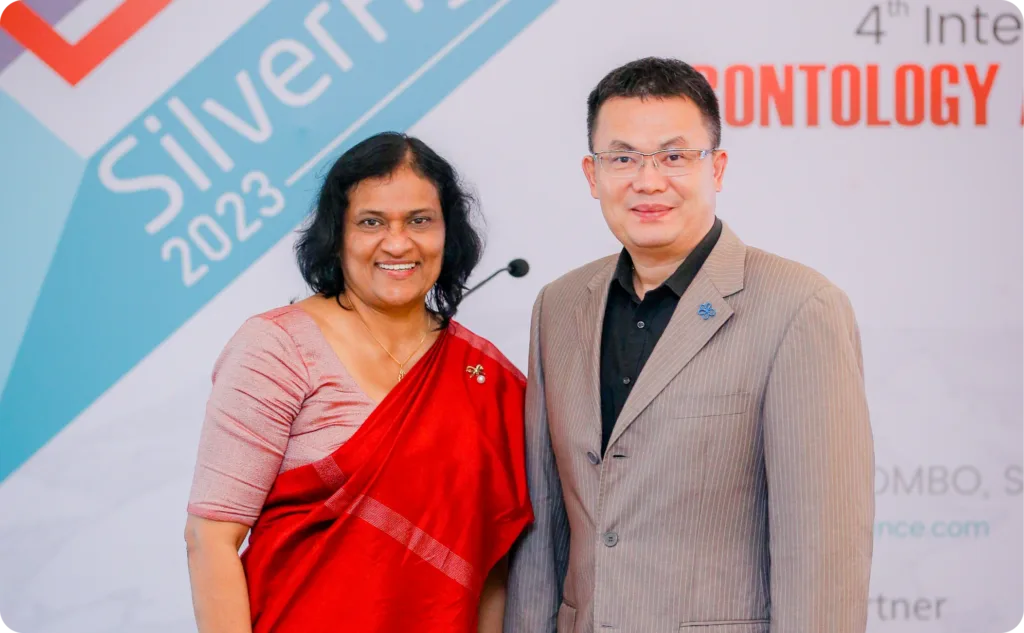
Dr. Rhonda Nay is an Emeritus Professor at La Trobe University. She has served on numerous government and professional committees and has worked closely with organizations advocating for improved care of older people. Her major research interests are in care/human rights of older people – especially PLWD – and more specifically: person-centered care; sexual rights; pain; family staff relationships; end-of-life care and workforce issues. She gave a keynote speech at the 4th International Conference on Gerontology and Geriatric Medicine 2023 titled “Stigma, Silos, Politics and Poppycock: what happened to PCC, evidence and leadership?”
Technical Session 1 – Awareness/ Attitude/ Competency
The first technical session was chaired by Dr. Shiromi Maduwage, a public health specialist and consultant physician from the Ministry of Health in Sri Lanka. Six researchers presented their findings on gerontology. The session focused on the three domains of gerontology and geriatric medicine: awareness, attitude, and competency. The participants discussed the challenges and opportunities of working with older adults, the importance of respecting their dignity and autonomy, and the skills and knowledge required to provide quality care. The session also included a case study analysis and a self-assessment exercise to identify areas of improvement. The researchers also offered valuable suggestions on neurodegenerative diseases, particularly dementia in elderly people, which were thoroughly discussed during the session.
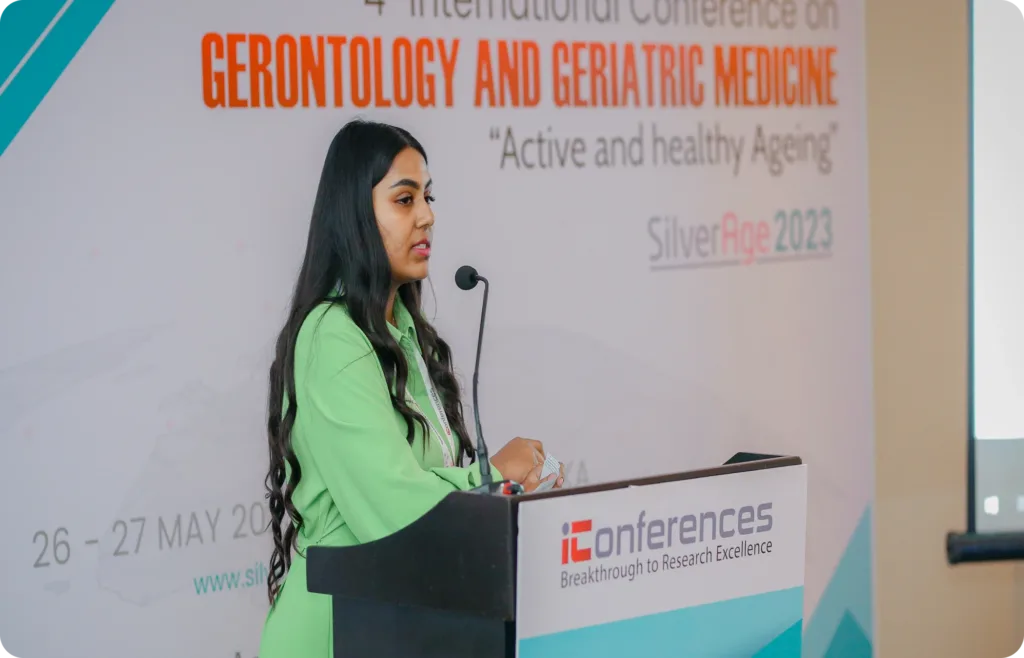
Technical Session 2 – Covid 19
Dr. Subramanium Ponnusamy chaired the next session titled “COVID-19” which was
consisted of 4 researchers from Sri Lanka and India. Under this track, the efficiency of
vaccines in terms of gerontology and post pandemic context. This session underlined the
case-fatality rate for COVID-19 increases dramatically with age, and people aged 65 years
and older account for a large percentage of hospitalizations, intensive care unit admissions,
and deaths. Older people in residential aged care facilities and nursing homes have an even
greater risk of death given their age and comorbidities.
The session discussed the impact of the COVID-19 pandemic on the health and well-being of
older adults, especially those with dementia and other chronic conditions. The speakers
highlighted the challenges and opportunities for gerontology and geriatric medicine in the
context of the pandemic, such as providing quality care, promoting social interaction, and
advancing research and education. The session also explored the potential implications of the
pandemic for the future of aging and longevity. The session concluded with some
recommendations for policy and practice to address the needs and rights of older adults
during and after the pandemic.
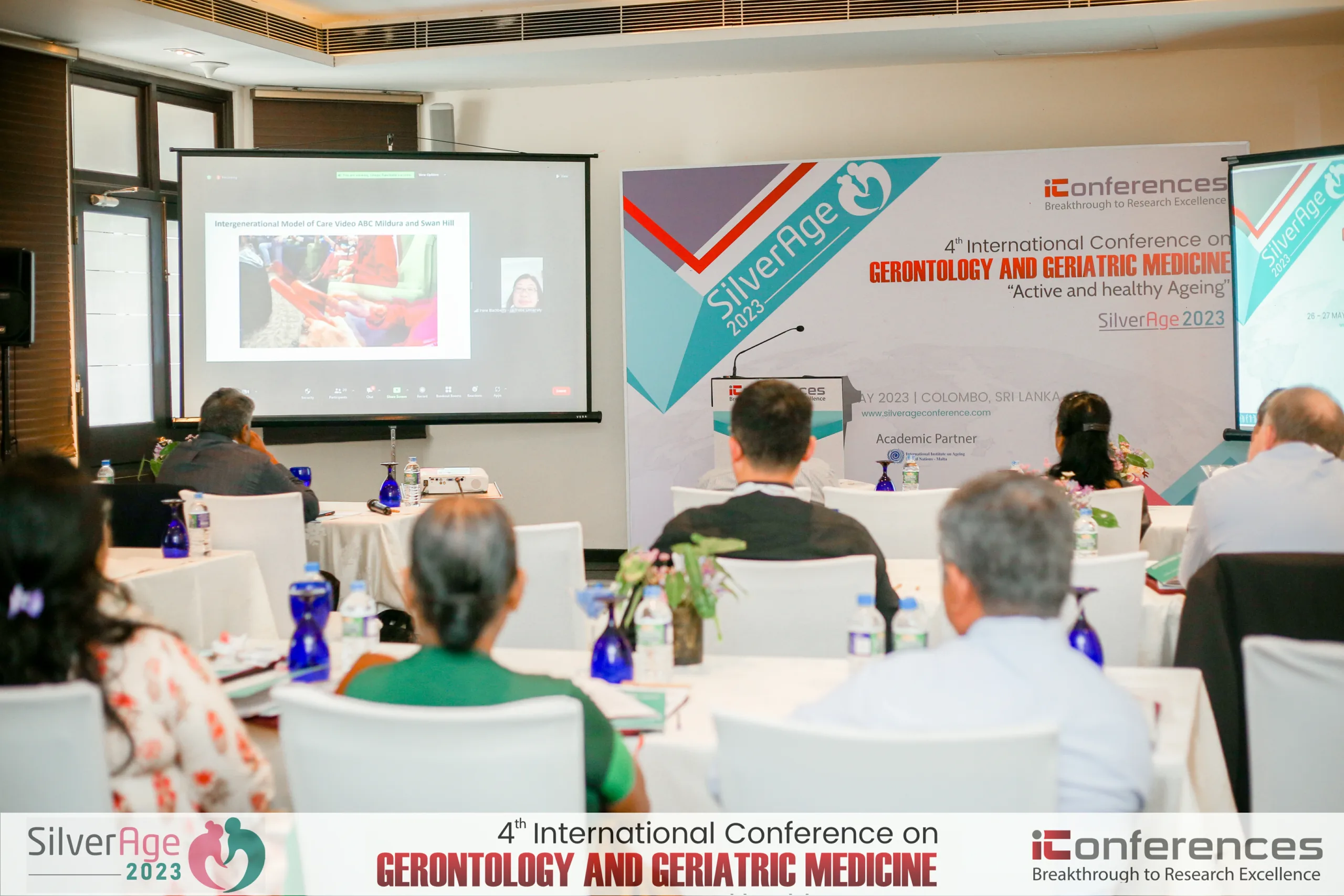
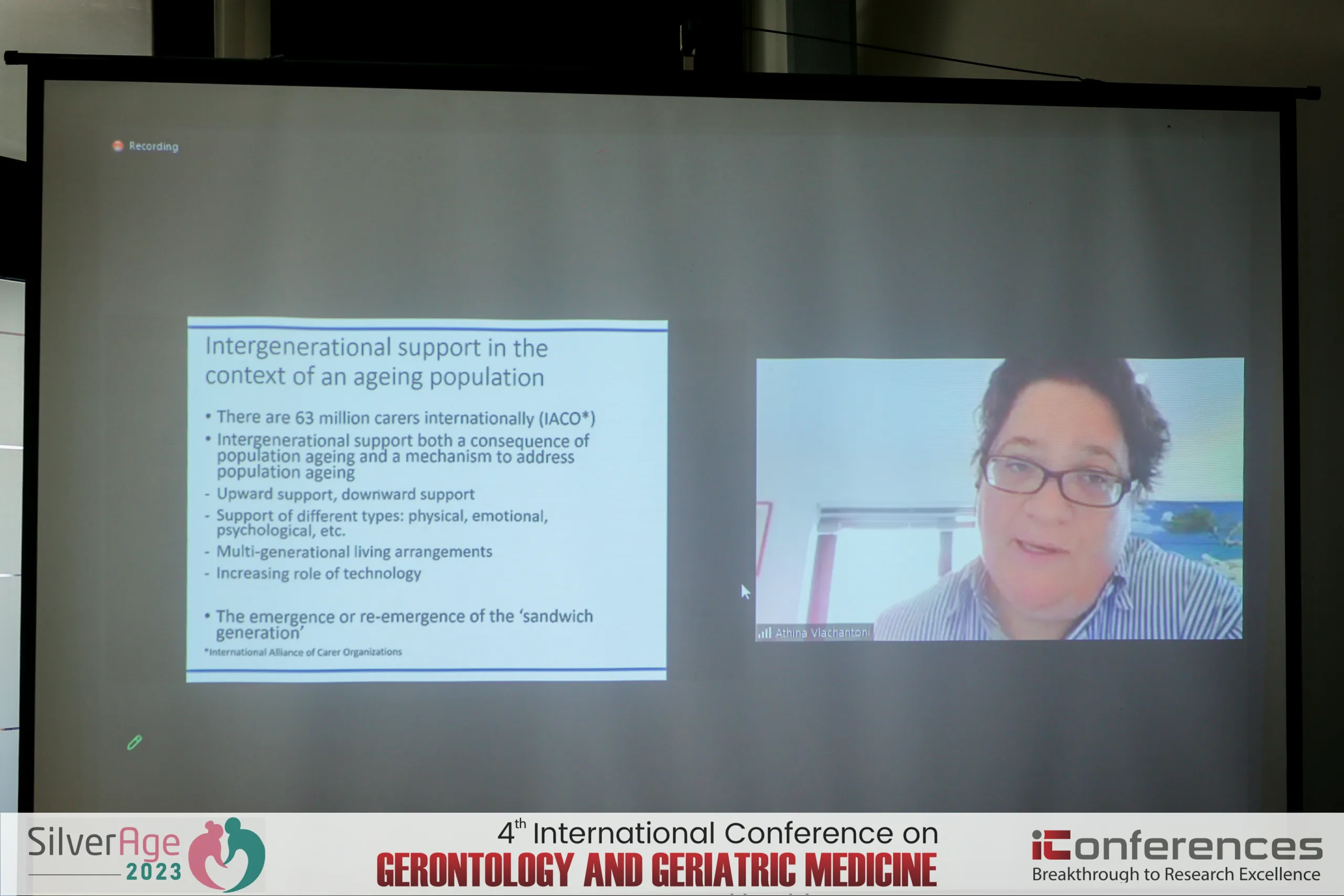
Technical Session 3 – Medical Condition
The session medical condition was chaired by Dr. Arvind Mathur Editor, Journal of the Indian Academy of Geriatrics Director and Managing Trustee, Asian Centre for Medical Education, Research & Innovation Chairperson, Caregivers Asha Society Ex-Principal and Controller, Professor of Medicine, Dr S. N. Medical College, Jodhpur. Geriatric syndromes such as delirium, falls, incontinence, and frailty are also highly prevalent, multifactorial, and associated with substantial morbidity and poor outcomes were deliberated during the session. Moreover, it added the surgical conditions in geriatric society.
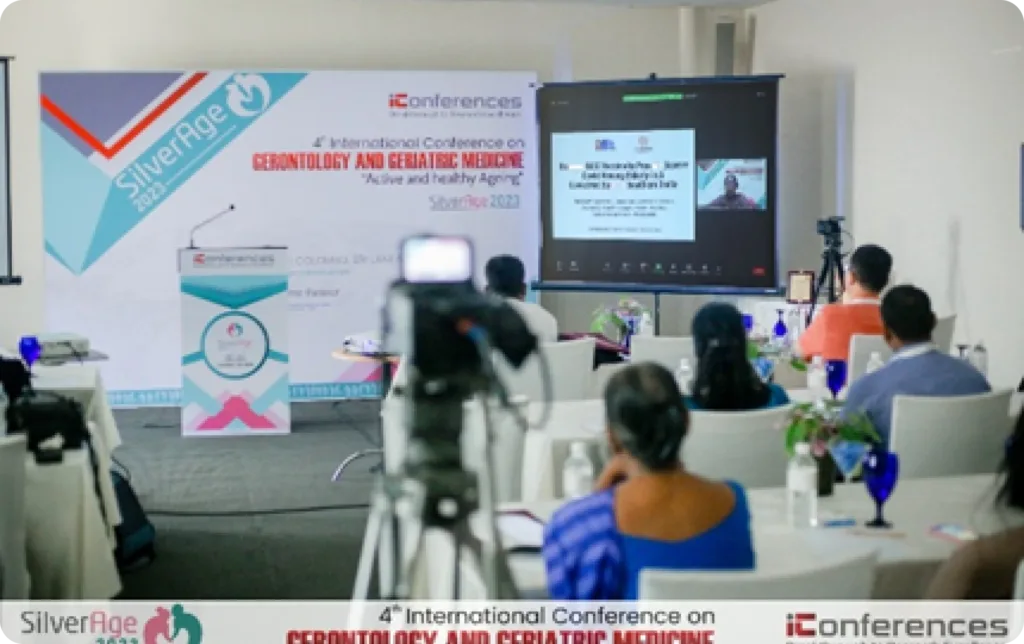
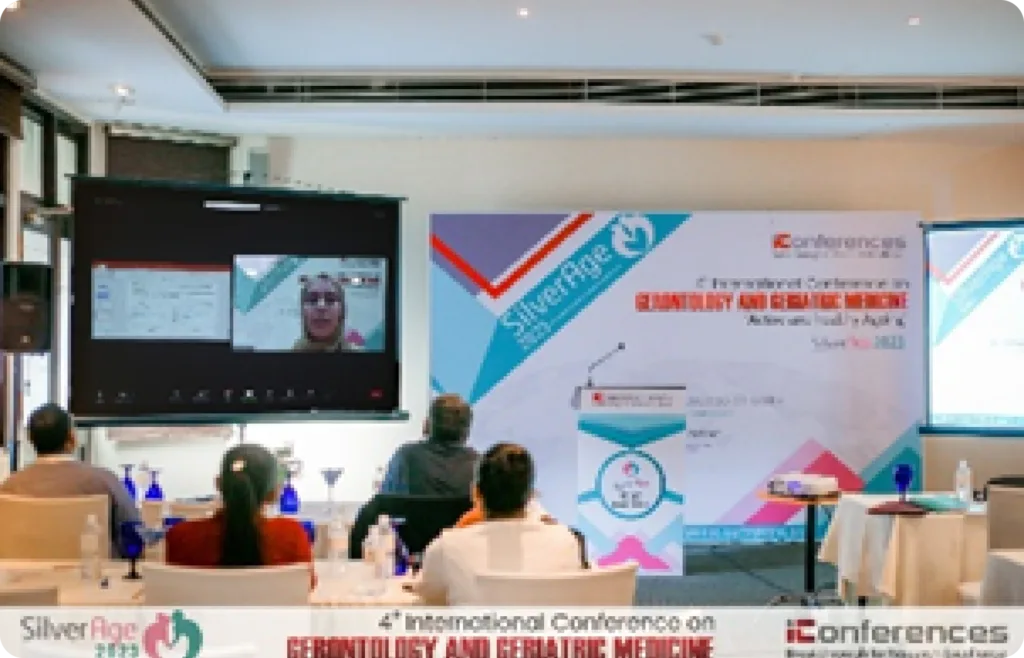
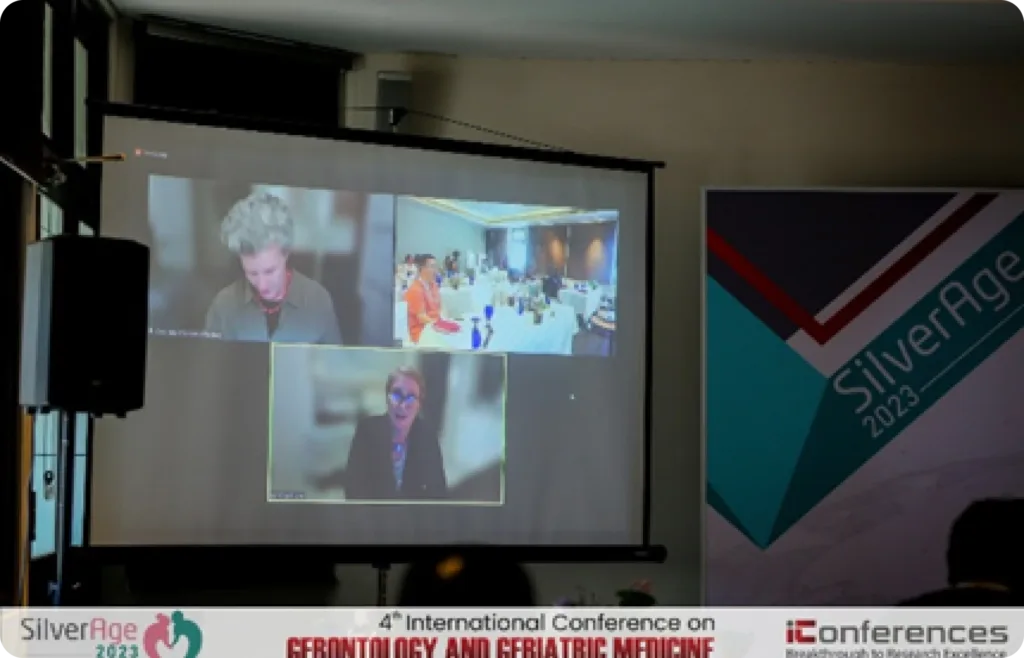
Keynote forum
The forum was moderated by Ms. Rosette Farrugia Bonello, Deputy Director of the International Institute on Ageing, United Nations-Malta (INIA). The speakers included Dr. Datin Jacqueline WM Wong, Honorary Advisor of Demensia Brunei, Dr. Shiromi Maduwage, Dr. Alexsandre Sidorenko, senior advisor at the European Centre for Social Welfare Policy and Research in Vienna, Austria, and Ms. Femanda Shamam, CEO of the Association for the Aged (TAFTA) in Durban, KwaZulu-Natal, South Africa. They delivered valuable talks on gerontology and geriatric medicine including the concept of healthy ageing.
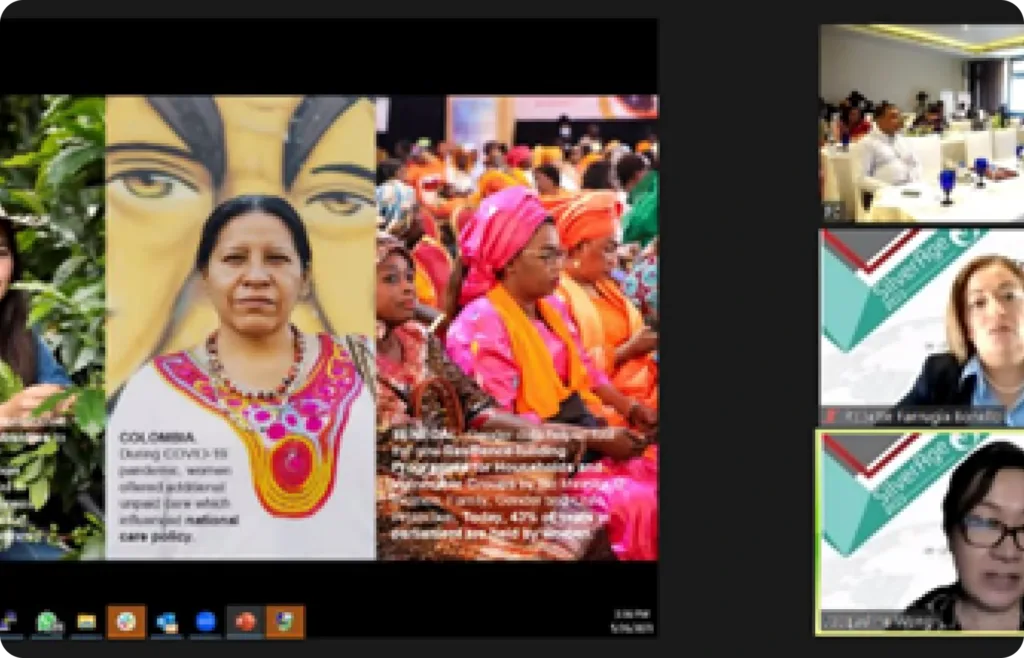
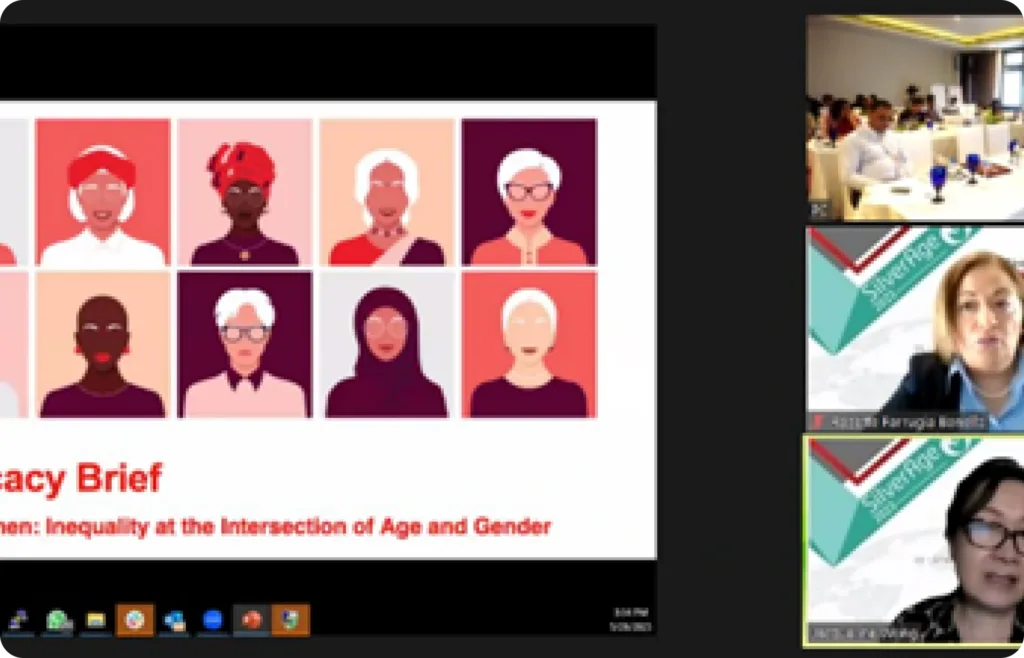
Technical Session 4 – Prevalent/ Descriptive factors
This session, chaired by Dr. Nidhi Mishra provided a prevalent and descriptive overview of the factors that influence gerontology, the study of aging and older adults. The session covered biological, psychological, social, and environmental aspects of aging, as well as the challenges and opportunities that older adults face in different contexts. The session also discussed current research and best practices in gerontology, and how they can inform policy and practice.
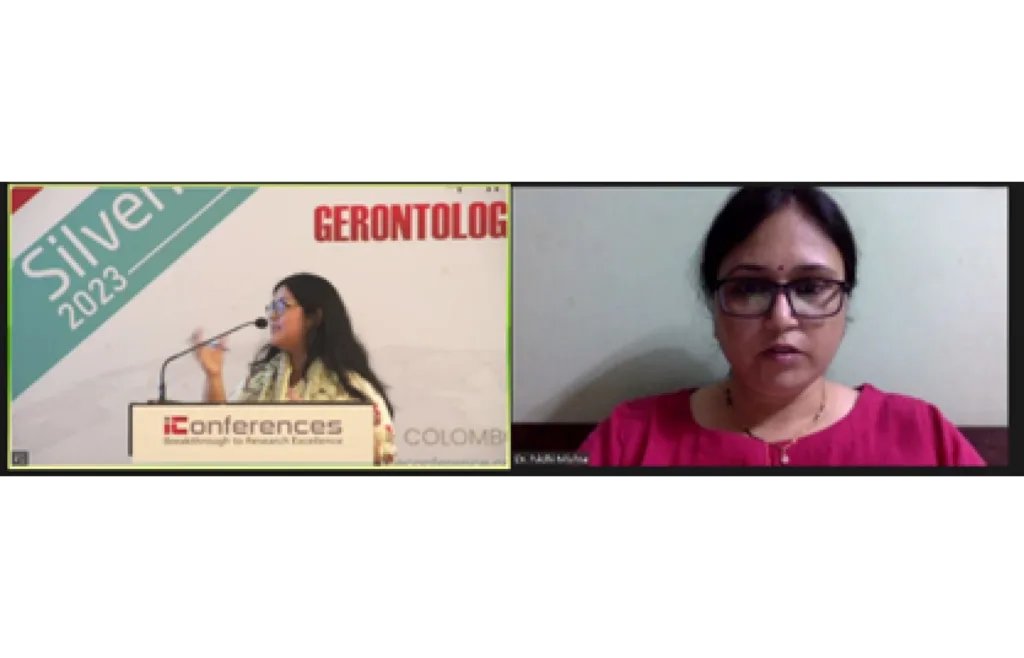
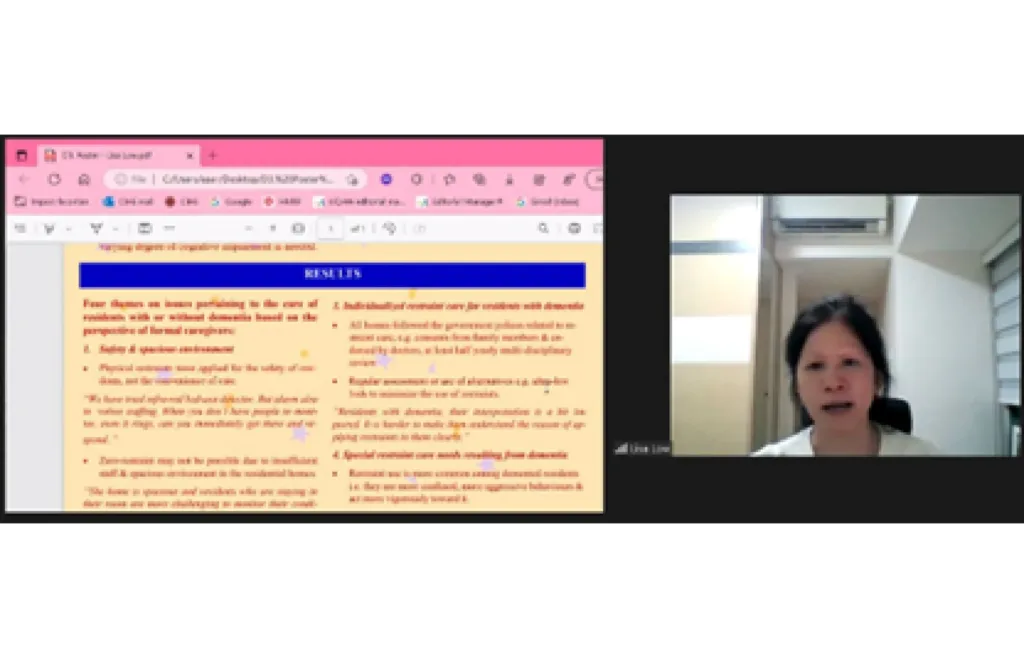
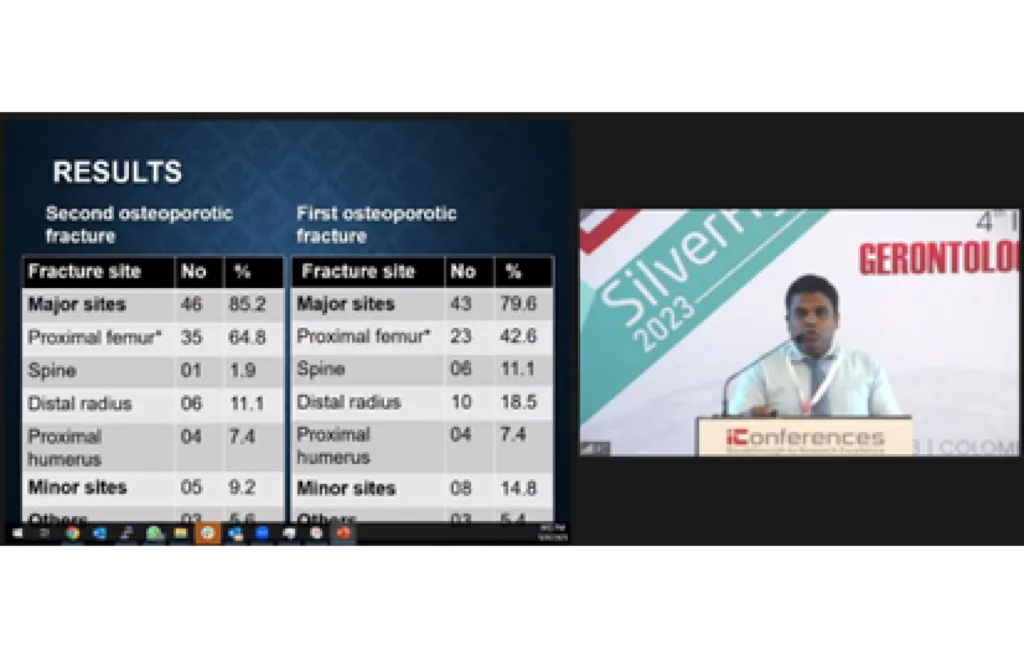
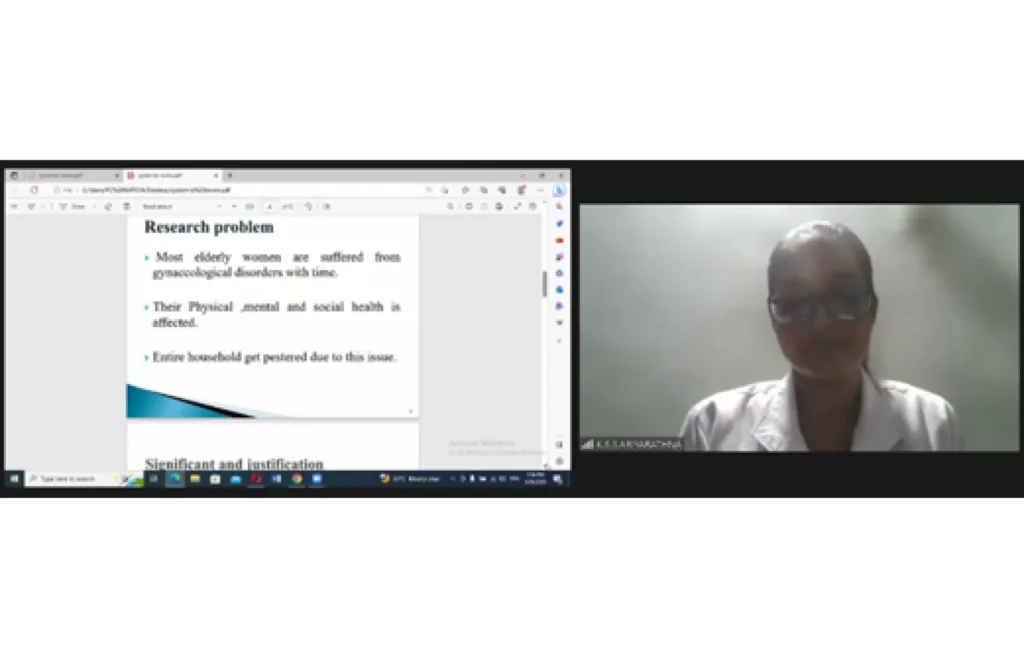
Technical Session 5 – Psychology
The session focused on the psychological and psychiatric aspects of aging, such as cognitive decline, mental health, and well-being. The speakers discussed the latest research findings and clinical implications of gerontology, which is the study of the social, cultural, psychological, cognitive, and biological aspects of aging. They also addressed the challenges and opportunities for improving the quality of life and care of older adults in various settings. The session highlighted the importance of interdisciplinary collaboration and evidence-based practice in gerontology.
Keynote forum
The keynote of gerontology and geriatric medicine focused on two main topics: intergenerational support and ageing and transforming care for older adults. The first topic explored the challenges and opportunities of the new kind of sandwich generation, which consists of middle-aged adults who provide care and support to both their ageing parents and their adult children. The keynote discussed the implications of this phenomenon for social policies, family relationships, and well-being. The second topic presented some examples of co-designing impactful and sustainable innovations for improving the quality of life and care of older adults. The keynote highlighted the importance of involving older adults as co-creators and co-researchers in the design process and showcased some of the outcomes and benefits of such collaborations
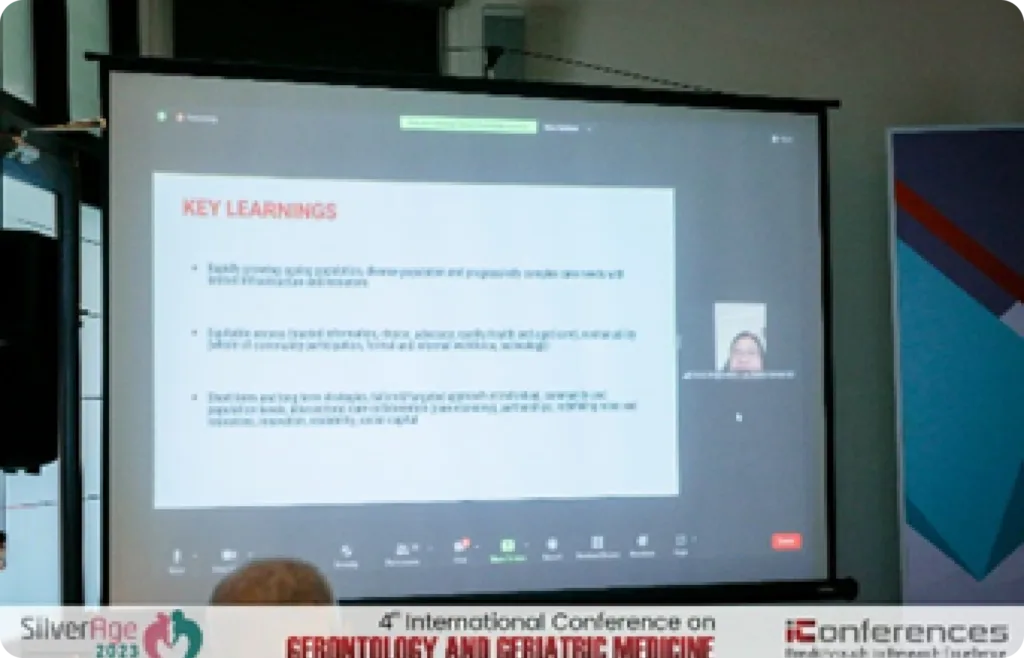
Workshop
The workshop titled "The Essential Skills Set to Manage the Needs of Older Adults with Memory Impairment Living in the Community" was held on May 27th , 2023, by Dr Anton H Buddhika Peiris (Auckland Hospital & Geriatric Care Australia, Australia). The workshop aimed to provide practical guidance and best practices for health professionals and caregivers who work with older adults with memory impairment in community settings. The workshop covered topics such as assessment and diagnosis, communication and behavior management, medication and non-pharmacological interventions, legal and ethical issues, and caregiver support. The workshop also included interactive sessions and case studies to illustrate the application of the skills set. The workshop was attended by 35 participants from various disciplines and backgrounds. The feedback from the participants was positive and indicated that the workshop was informative, useful, and relevant to their work.
Technical Session 6 – Traditional Medicine
The session was chaired by Dr. Prathiba Pereira, JSS Medical College Hospital, Department of Geriatrics, India, who gave an overview of the current research and challenges in this field. The speakers discussed acupuncture for chronic pain in older adults, the effects of herbal medicine on cognitive function and mood in elderly patients and meditation into geriatric care. The session concluded with a Q&A session, where the audience raised questions and comments on the topics covered by the speakers.
A movie related to gerontology was showcased by Caroline. The movie follows the lives of elderly people who face different issues such as loneliness, dementia, caregiving, and end-of-life decisions. The movie aims to raise awareness and empathy for the older population and to challenge the stereotypes and prejudices that often surround them.
